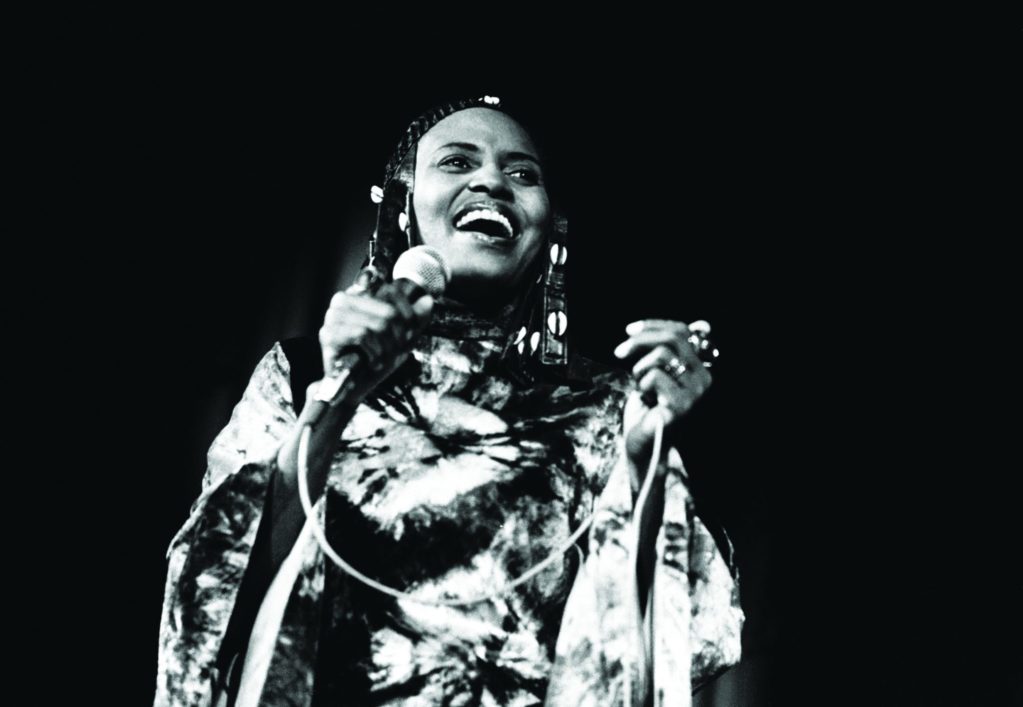There she was, wearing a woven two-piece suit, with earrings hanging like chandeliers, flanked by empty chairs on either side.
This was at the United Nations (UN) in New York on July 16, 1963. In parts of the United States, a black person couldn’t even sit down at restaurants freely. Yet, here was an African singer from the beer halls of Sophiatown and Soweto sitting confidently before the most powerful leaders in the world, telling them of the ills of apartheid South Africa.
“I ask you and all the leaders of the world, would you act differently, would you keep silent and do nothing if you were in our place? Would you not resist if you were allowed no right in your own country because the color of your skin was different from the color of the rulers, and if you were punished for even asking for equality? I appeal to you, and to all the countries of the world, to do everything you can to stop the coming tragedy. I appeal to you to save the lives of our leaders, to empty the prisons of all those who should never have been there,” said Miriam Makeba calmly.
At the time, 31-year-old Makeba was a revered singer and activist. She was among the first female African singers to achieve international success and used this to become a powerful voice in the anti-apartheid movement.
Rivonia trialist Denis Goldberg, who faced the death penalty with Nelson Mandela, had been arrested just five days before Makeba’s speech.
Loading...
“The talent of a black musician made South Africa sit up and take notice. During apartheid, it was rare to see such an outstanding woman like Miriam Makeba,” says Goldberg.
She left the country when the apartheid government banned black musicians from performing in halls and theaters, and paid a terrible price.
It was in 1960, when Makeba tried to return to South Africa for her mother’s funeral, that she was told her passport had been revoked. This was punishment for her appearance in the documentary Come Back, Africa that exposed the inequities of living under the rule of the nation’s oppressive government. She lived in exile for three decades.
When she spoke at the UN, her citizenship was taken away all together.
In 1964, Makeba spoke again at the UN. This time before the decolonization committee, where she pleaded for the release of female political prisoners in South Africa. In an interview with Bomb magazine from the United States, in 2000, she says it was the African National Congress (ANC) who asked her to use her popularity for the cause.
Makeba remained in exile until the end of apartheid in the early 1990s. During Mandela’s tenure as the country’s president, she was a member of Parliament between 1994 and 1999. She became the first African woman to win a Grammy Award, sharing the musical honor for best folk recording, with Harry Belafonte for their anti-apartheid album, in 1965. Belafonte had helped Makeba settle in the United States, where she had a successful singing career.
Makeba died of a cardiac arrest in November 2008 after a concert near the town of Caserta, in southern Italy. Her final performance was to campaign for journalist Roberto Saviano, who had received death threats for writing about organized crime.
To the end, Mama Africa, as she was affectionately known, sang in the cause of those under the heel of oppression. Millions remember her unique tongue-clicking music, sung in her mother language of Xhosa; songs such as Qongqothwane, popularly known as the The Click Song, Pata Pata and Malaika. She also made appearances in musicals King Kong and Wait a Minim!.
But maybe millions more will remember her for her brave words on a summer’s day in 1963.
Loading...
